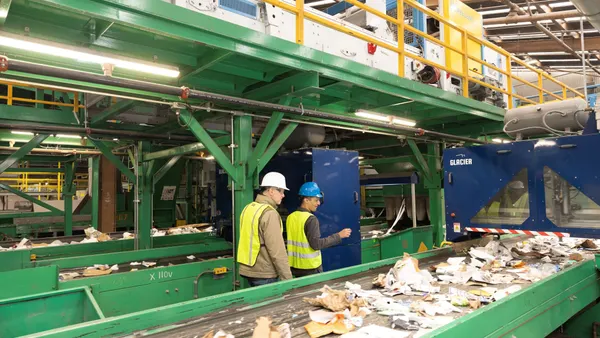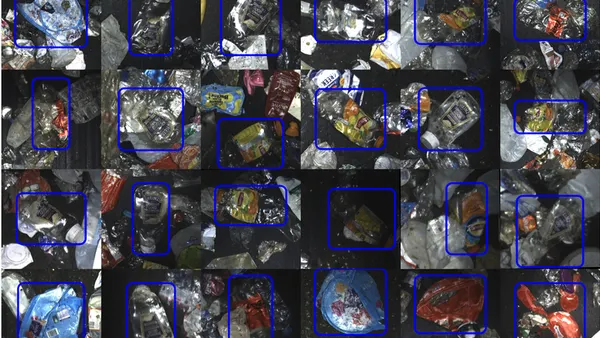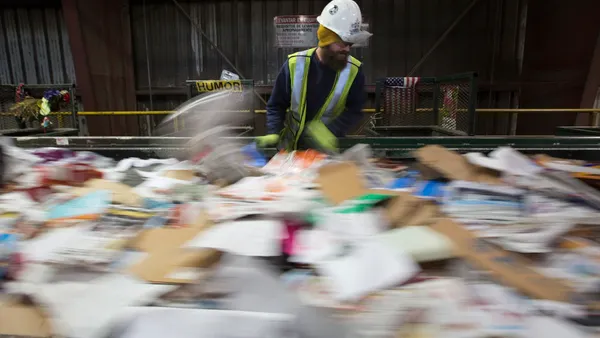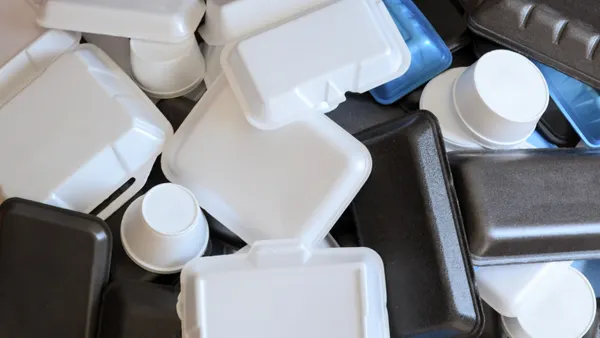Looking to talk more trash? Check out all of the episodes or follow us on iTunes!
The rise of e-commerce — and the associated rise of packaging waste — has become a popular way to track recycling industry trends. Many articles have been written in recent years on how e-commerce growth may be creating a "mountain of cardboard," or increasing municipal collection rates, or even creating entirely new waste stream challenges in the form of meal-kit ice packs. Analysis often points to e-commerce giant Amazon as a driver of this trend, with many referring to this as the "Amazon Effect." Therefore when Amazon recently announced plans to acquire Whole Foods Market, many questions were raised about how the deal might affect packaging choices and the systems required to recycle them.
To better understand the how changes in e-commerce could create ripple effects for the recycling industry, Waste Dive decided to take a look at recent trends in municipal cardboard volumes, consumer opinions on e-commerce packaging, how to design different packaging for easy processing and how many residents have access to programs that can recycle that packaging.
First up, Retail Dive Associate Editor Corinne Ruff offered her initial insights on the e-commerce evolution and what this Amazon deal could mean for other retailers. Then, Sustainable Packaging Coalition Associate Director Adam Gendell broke down the different drivers behind retail packaging versus e-commerce and what it means for Amazon to further expand its supply chain.
Sit back, relax and crank up the volume. This is Talkin' Trash with Waste Dive.











